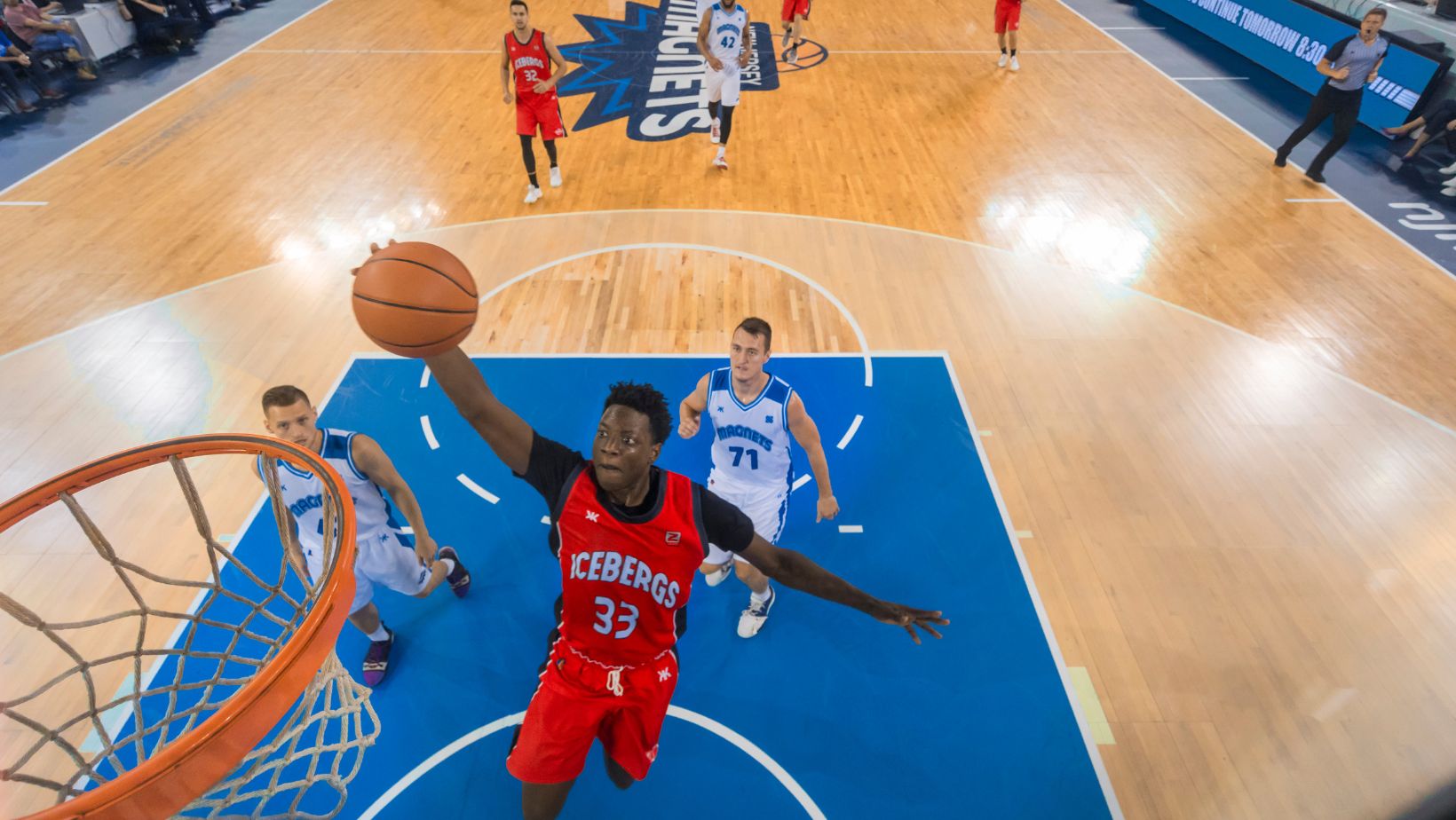When it comes to the game of basketball, one common question that often arises is, berapakah jumlah pemain bola basket? Understanding the number of players on a basketball team is crucial for both players and fans alike. Whether you’re a seasoned basketball enthusiast or just starting to explore the sport, knowing the basic rules and structure of the game is essential. In this article, we’ll delve into the specifics of how many players are typically involved in a basketball match and the roles they play on the court.
The dynamics of a basketball game are not only exciting but also strategic, with each player contributing uniquely to their team’s performance. By grasping the fundamentals of player positions and team composition, you’ll gain a deeper appreciation for the fast-paced and exhilarating sport of basketball. Let’s uncover the mystery behind the number of players in a basketball game and the significance of their positions in shaping the outcome of each match.
Berapakah Jumlah Pemain Bola Basket
In basketball, the number of players on a team and their respective roles play a crucial role in shaping the dynamics of the game. Understanding the standard player count and positions is fundamental for both players and fans to appreciate the sport more deeply.
- Player Count:
- A standard basketball team usually consists of five players on the court at a time.
- Understanding this player count is essential for strategizing gameplay effectively.
- Roles and Positions:
- Each player on a basketball team has a specific position and role to fulfill during the game.
- The positions include point guard, shooting guard, small forward, power forward, and center.
- The unique skills and responsibilities of each position contribute to the team’s overall performance.
- Impact on the Game:
- The player count and positions significantly influence how a team functions on the court.
- The interplay between different positions creates strategic advantages and opportunities for scoring and defense.
- Understanding the player count and positions enhances appreciation for the teamwork and coordination required to succeed in basketball.
- Tactical Considerations:
- Coaches often adjust player rotations based on the game situation and opponent’s strategy.
- Having a clear understanding of player roles and positions allows teams to adapt their tactics effectively during a match.
By grasping the player count and positions in basketball, players and fans gain a deeper insight into the strategic elements that shape the outcome of each game.
In basketball, understanding the number of players on the court and their designated positions is essential for comprehending the intricacies of the game. With five players typically on the court at any given time, teams must strategically deploy their players to maximize their strengths and exploit the opponent’s weaknesses. This player count sets the foundation for gameplay strategies and facilitates effective coordination among team members.
Each player on a basketball team occupies a specific position, each with its own set of responsibilities and contributions to the team’s performance. From the point guard who orchestrates the offense to the center who anchors the defense, each position fulfills a crucial role in executing team strategies. Understanding the nuances of these positions allows players and fans alike to appreciate the diverse skill sets required to excel in basketball.
The player count and positions not only dictate individual roles but also shape the overall dynamics of the game. The strategic interplay between different positions creates opportunities for collaboration, teamwork, and innovation on the court. Whether it’s setting up scoring opportunities or defending against opponents, each player’s position influences their decisions and actions during gameplay. Recognizing these dynamics enhances spectators’ enjoyment of the sport and deepens players’ understanding of their roles within the team framework.
Understanding the Standard Number of Players in Basketball
In basketball, the standard number of players on a team is five. Each player has a specific position that determines their role on the court. These positions include the point guard, shooting guard, small forward, power forward, and center. Each position has unique responsibilities that contribute to the overall strategy of the team.
The point guard is typically responsible for facilitating the team’s offense by setting up plays, distributing the ball to teammates, and being a primary ball-handler. The shooting guard is known for scoring points through shooting from long range and driving to the basket.
The small forward is a versatile player who can score inside and outside, as well as defend multiple positions. The power forward is usually a strong rebounder and scorer in the key area. The center is often the tallest player on the team and plays a crucial role in both offense and defense, protecting the basket, blocking shots, and scoring close to the hoop.
Understanding the specific roles of each player in basketball is essential for maximizing team performance. Coaches strategically manage player rotations to exploit matchups and adapt to different game situations. By comprehending the standard number of players on a basketball team and the positions they play, one can appreciate the intricacies of the sport and the coordinated effort required for success.
In basketball, the standard number of players on a team is five. Each player has a specific position that determines their role on the court. These positions include the point guard, shooting guard, small forward, power forward, and center. Each position has unique responsibilities that contribute to the overall strategy of the team.
The point guard is typically responsible for facilitating the team’s offense by setting up plays, distributing the ball to teammates, and being a primary ball-handler. The shooting guard is known for scoring points through shooting from long range and driving to the basket.
The small forward is a versatile player who can score inside and outside, as well as defend multiple positions. The power forward is usually a strong rebounder and scorer in the key area. The center is often the tallest player on the team and plays a crucial role in both offense and defense, protecting the basket, blocking shots, and scoring close to the hoop.
Variations in Player Numbers in Different Basketball Formats
In certain basketball formats other than the traditional five-player structure, variations in the number of players on the court can be observed. Understanding these variations provides insight into different gameplay strategies and dynamics across various basketball settings.
In three-on-three basketball, as the name suggests, each team consists of three players on the court. This format emphasizes faster-paced gameplay, increased individual skill prominence, and strategic maneuvering due to fewer players per team. The reduced player count often leads to more one-on-one matchups and requires players to excel in multiple facets of the game.
While the standard basketball game is played with five players on each team, leagues or tournaments may implement rules allowing for substitutions. In these cases, teams have a roster of players who can be substituted in and out during the game, maintaining the original five-player composition. Substitution rules impact player fatigue management, tactical adjustments, and overall team performance over the course of the game.
In full-court basketball, teams play on a standard-sized court but with varying numbers of players. Some variations include full-court games with fewer than five players per team, such as four-on-four or even three-on-three. Playing full-court with fewer players challenges teams to adapt their strategies, defensive schemes, and offensive plays to maximize space utilization and capitalize on scoring opportunities.
Contrary to full-court basketball, half-court basketball restricts gameplay to a smaller area of the court. This format can feature different player numbers, including three-on-three or even two-on-two games. Half-court basketball enhances player communication, decision-making, and teamwork, as the condensed space requires efficient movement, passing, and shot selection to outmaneuver opponents.
By exploring variations in player numbers across different basketball formats, players, coaches, and enthusiasts gain a broader understanding of the sport’s adaptability, strategic nuances, and skill development opportunities in diverse playing environments.
Factors Influencing Player Count in Basketball
Playing basketball involves different player counts based on the specific format being played. The factors influencing the number of players in a basketball game vary depending on the format and level of play. Here are key considerations that influence player counts in basketball:
- Game Format:
- In standard five-on-five basketball, each team has five players on the court. This setup allows for a balanced gameplay with designated positions and roles.
- Three-on-three basketball is popular for its fast-paced nature and strategic gameplay, emphasizing skills like spacing, quick decision-making, and individual player versatility.
- Full-court basketball with varying player counts, such as 4v4 or even 1v1, can be played for specific training purposes or in recreational settings, focusing on different aspects of the game.
- Half-court basketball, often played informally, may involve smaller player counts to suit the court size and gameplay preferences.
- Skill Development:
- The number of players on the court can impact skill development in basketball. Smaller player counts like three-on-three can enhance individual skills, decision-making, and adaptability under pressure.
- Full-court games with traditional five-on-five settings offer a comprehensive experience focusing on teamwork, communication, and positional awareness.
- Team Strategy and Tactics:
- The player count influences team strategies and tactics. In five-on-five basketball, coaches can implement complex plays, rotations, and defensive schemes due to having more players on the court.
- Three-on-three games require players to excel in multiple facets of the game, promoting creativity, improvisation, and efficient teamwork in a compact setting.
- Fitness and Endurance:
- Player count affects the physical demands of the game. More players can lead to increased substitutions, allowing for rest periods and maintaining high energy levels throughout the game.
- Smaller player counts can result in higher individual workload, requiring players to possess superior fitness levels and endurance for sustained performance.
Understanding the factors influencing player count in basketball provides valuable insights into the dynamics of the game, skill development opportunities, and strategic considerations across different formats.
Understanding the varying player counts in basketball is essential for adapting to different game formats and enhancing overall performance. From the standard five-player setup to three-on-three games and beyond, the sport offers a diverse range of experiences based on the number of players on the court. Factors such as game format, skill development, team strategy, and fitness play crucial roles in shaping the dynamics of basketball gameplay. By recognizing these influences, players can better navigate the nuances of the sport, optimize their strategies, and elevate their on-court performance. Embracing the flexibility that comes with different player counts opens up new opportunities for growth, development, and success in the dynamic world of basketball.









More Stories
How To Get Free CS2 Skins: All Legal Ways
What Are Sweeps Coins? An Introduction
The End of Console Generations: A Glimpse Into Gaming’s Future